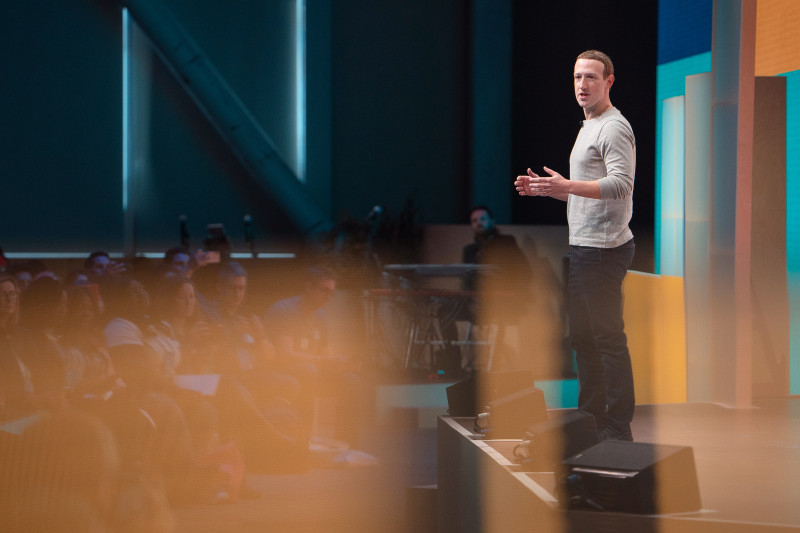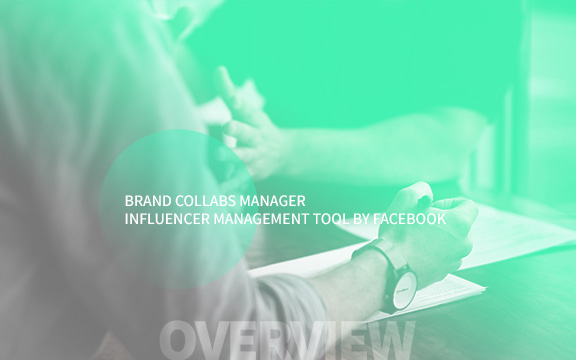In 2018, Facebook launched its influencer management tool, Brand Collabs Manager, and to this day it is still limited in terms of accessibility. Fast forward to December 2019 when the Brand Collabs Manager announced that it plans to expand its service to Instagram Creators in 2020. Upon reading the announcement article, a few things stuck out to us such as “Brand Collabs Manager – a marketplace tool” or “we will be investing even more resources in 2020 to help them [the creators] build their businesses on Instagram”. The strong choice of words by Zuck’s team caught our attention. This is why we would like to put in perspective how Facebook will change the influencer marketing world in 2020, leveraging its Brand Collabs Manager platform.

Here is the first article of this series written by Albin Lix, Xavier Schillinger, and Winnie Chan covering the expansion of Brands Collabs Manager. Enjoy!
Introduction of Brand Collabs Manager
The Brand Collabs Manager is a tool for Creators (Facebook’s term for Influencers) to find business opportunities and for brands to find influencer partnerships. Hence, the tool allows you to search, evaluate, and contact (AND PAY!) Influencers. Once they register to the platform, Influencers will get collaboration requests directly through Facebook/Instagram as well as a revenue stream to start making money. And for Facebook, it also increases user transparency. Let’s take a closer look at the pros and cons of this platform:
- PROS for the Influencers
- Receive contacts from agencies/brands directly via Facebook/Instagram with direct sponsorship budget without any third-party fees
- Leverage opportunities to negotiate specific collaboration terms
- CONS for the Influencers
- Payment processing times could be longer than usual due to the payment policy applied by Facebook, which is actually the first step of the new revenue stream (see below)
- Full disclosure of collaboration and sponsorship with Facebook/Instagram & the brands
- PROS for brands and agencies
- Direct access to Influencers, at least to the ones registered, without third-party intervention
- New sponsorship opportunities with greater exposure and Youtube-like revenue system on ads
- Marketing synchronization between Influencers, content, and Facebook/Instagram Advertising!
- CONS for brands and agencies
- Poor levels of available analytical data. The data is currently very broad (Demographic data, Engagement Rate, etc.)
- In the mid-term, a closer “environment” will re-shuffle the cards of influencer budgets
- A potential monopoly from Facebook with the exclusion of third parties and biased recommendations of Influencers. This is reminiscent of the position adopted by Google (search algorithm, Adwords, Analytics), which some consider it to be a “judge & jury” architecture
 To dive deeper, you can find our other 2 articles here, dedicated to explaining Brand Collabs Manager for Influencers and Brand Collabs Manager for Marketers.
To dive deeper, you can find our other 2 articles here, dedicated to explaining Brand Collabs Manager for Influencers and Brand Collabs Manager for Marketers.
Changes affecting the Influencer Marketing landscape
Beyond Facebook’s efforts on the Brand Collabs Manager for the past 2 years, we would also like to share the following pivotal changes affecting the Influencer Marketing landscape:
- Instagram is set on hiding “likes” from the user feed, something we’ve discussed with several industry leaders in our article Instagram hiding Likes: How does it affect Marketers?. This move is likely to affect Influencers’ business but also the ability of brands & agencies to evaluate the performance of KOLs.
- This leads us to the state of the Influencer Marketing technology landscape, where there are currently dozens of platforms, business models, intermediaries, etc. Our agency understands the importance of looking at all types of Influencers: agnostic, creative and data-driven. To support us, our current partner Klear by Meltwater allows us to scale & optimize our Influencer collaborations with their database and analytics. And guess what? Brand Collabs Manager aim to act on this as well!
- At the moment, Facebook only has an indirect revenue stream from Influencer content based on the quality of time its users spend on the platforms and the advertising budgets allocated to increase the content’s reach (aka,”branded content“). The overall market is much larger, novel, and full of opportunities so why wouldn’t Facebook want to have a direct stream of their own?
- Finally, changes in laws & regulations in the European Union and countries such as the United States of America also affect Influencers, requiring them to disclose their paid partnerships and being questioned by users about the authenticity of their content, among others. This is an example of how changes in the macro-environment can affect everything that we do.
- Overall in 2020, Facebook plans to focus on sponsorship transparency blended with the new revenue stream via Brand Collabs Manager. They want to refresh the user experience and push it towards more creativity & authenticity with the potential of hiding ‘Likes’ deployed across all users, and to increase its financial efforts for Content Creators with this retooled platform.
The “Content Creator” vs “Influencer” Perspective
When one thinks about “Influencers”, the first platform to come to mind is usually Instagram, however when one thinks about “Content Creators”, the first platform is usually “YouTube”. This is exactly what Facebook is trying to tackle! YouTube, from early-on, started to consider its Content Creators as THE real added value of the platform, hence the advertising monetization of YouTube channels.
For the record, in Asia (except China) YouTube is an overlooked platform as few brands are activating content creator partnerships when the video platform always stands in the top 2 in monthly usage. You may consult the We Are Social Digital 2020 Reports here: https://datareportal.com/reports/?tag=APAC
Over the past 3 years, Facebook does see YouTube as their main competitor in the content sharing fight. Brand Collabs Manager and the numerous efforts Facebook is putting to get closer to its Content Creators are inspired by the Alphabet-owned company. Another inspiration could be the rise of paid content platforms such as Patreon, where people pay a subscription to access more/better/different content. Accordingly, Facebook rolled out their 2019 “Fan Subscription” (although still only available to a handful of Pages) to receive monetized payments from their fans.



